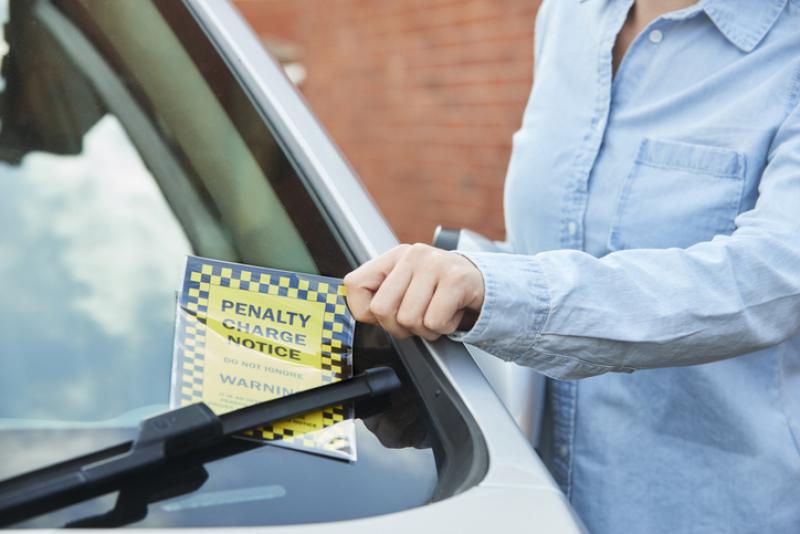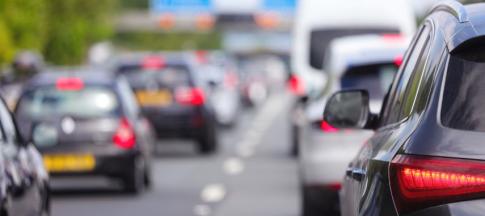
Parking fines are quite common amongst drivers, no matter how experienced a driver you are. We’ve put together this guide on everything you need to know about parking safely and what to do if you get a fine.
Common reasons for parking fines
There are some reasons for parking fines that a lot of people aren’t even aware of. We’ve listed some of them below.
Parking the wrong way at night
Not many people know this, but you can be fined up to £1,000 for parking on the road at night if you’re not facing the direction of the traffic – even though it’s perfectly legal during the day.
This is because the rear reflectors on the back of a car make it visible to oncoming drivers in the dark.
The rule only applies when you’re not parked in a designated area.
Not keeping your sidelights on
At night, you must always put your sidelights on when parked on the road or in a lay-by with a speed limit above 30mph.
Parking somewhere that’s out of bounds
You’d be surprised how many people are fined, and/or see their vehicle clamped or impounded, because they’ve parked in a strictly prohibited spot.
These include, but aren’t limited to:
- near a school entrance
- anywhere preventing emergency services’ access
- lowered kerbs
- on a bend or at a property entrance
- at, or near, a bus/tram stop or taxi rank
The only exception is when you are forced to stop because of stationary traffic.
Double yellow line parking
Generally, you’re not allowed to park or wait on double yellow lines for any reason.
There are, however, a couple of exceptions to the double yellow line rules (although both only apply where there are no loading restrictions):
- Loading or unloading a van is allowed if it’s not possible to do this from a regular parking spot.
- If you’re a blue badge holder and it’s clearly displayed, you can park on double yellows for up to three hours.
When can you park on a single yellow line?
The rules for single yellow lines are slightly different to double yellows as you’re only prevented from parking or waiting there at certain times.
There aren’t standard rules for single yellow lines but there will be signs nearby explaining when you’re not allowed to wait or park there.
The rules of pavement parking
It’s not illegal to park on pavements but you must not block it for wheelchair-users, prams and other pedestrians who need to get by.
Some residential areas have narrow pavements and roads because they pre-date cars, so choose where you park carefully.
Although you won’t get fined under the current laws, your vehicle could be towed away if it’s causing an obstruction.
But the rules are different for Londoners. Under rule 244 of the Highway Code, it’s forbidden to park either ‘partially or entirely’ on the pavement in London unless signs state otherwise.
The footway parking ban also includes:
- pavements
- grass verges
- alleys
- ramps to people’s driveways
Break the law and you’ll be fined a £70 fixed penalty charge. You can find out more on London Councils’ website.
Types of parking tickets
There are four different types of parking tickets that can be issued.
Penalty Charge Notice (PCN)
This comes from a council and is normally for parking issues such as parking on double yellow lines or stopping in a box junction.
Excess Charge Notice (ECN)
This is another name for a Penalty Charge Notice. Again, this comes from a council and could be for issues like parking on double yellow lines.
Fixed Penalty Notices (FPN)
Fixed Penalty Notices (FPN) are issued by the police, councils or the Driver and Vehicle Standards Agency (DVSA).
They come with a fine and, quite often, penalty points on your driving licence. If you ignore the FPN, you could end up in court.
If you accept guilt, pay the fine or collect the points, you’ll avoid court. If you challenge the ticket, you’ll have to go to Magistrates’ Court for a hearing.
Parking Charge Notices (PCN)
This type of ticket often causes confusion as it’s also abbreviated to PCN (as is the Penalty Charge Notice).
These are issued by landowners or private parking companies if you’ve parked on private land or overstayed the maximum time in a supermarket car park, for example.
These Parking Charge Notices don’t come with the same legislative power as council-issued tickets, so you can dispute them.
The company that issued the ticket can take you to small claims court if you refuse to pay.
When can I appeal a parking ticket?
You may be able to appeal a ticket where:
- you were parked correctly (e.g. you returned within the specified time limit)
- the parking signs or road signs were hard to read/unclear
- there was no meter or machine to pay at
- you’ve been charged too much
- you weren’t driving when the ticket was issued
- you couldn’t get back to your car (e.g. if you’re disabled and find it difficult to walk, or you’re pregnant)
- your car broke down and you were waiting for it to be fixed or towed away
How do I appeal a parking ticket?
Depending on who issued the ticket (a council, the police, or a privately-owned business) you need to find the relevant contact details and either write them a letter or email.
You’ll need to give as much evidence as possible in your appeal as it’ll give you a greater chance of being successful.
You could include a valid pay and display ticket, photos showing there were no road markings to restrict parking or that signs were hard to see or difficult to understand.
A witness statement letter from someone who was with you explaining what happened or a repair note if your car broke down would also be useful.
Other important information to include is:
- the date the ticket was issued
- your address
- your vehicle registration number
- the Penalty Charge Notice number
For more information, read the Citizen Advice’s guide to appealing tickets.
What are the risks of appealing a parking fine?
The first thing to consider is the price. Often you can pay half the price if you pay within 14 days of the ticket being issued.
Making an informal appeal by contacting whoever issued you with the parking ticket is free of charge. Even if you lose a PCN appeal, most councils will still let you pay just the discounted rate at this stage.
But if you make a formal appeal and lose, you must pay the full fine. It might be worth going all the way and appealing to an independent adjudicator, at which point 56% of cases usually win.
You could end up in court if both appeals are rejected, the independent tribunal disagrees with your appeal, and you then refuse to pay.
This could impact your credit rating and will result in you having to pay court costs.


